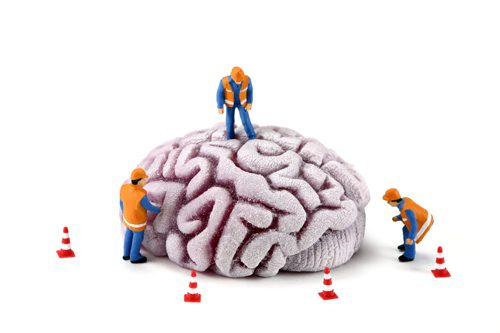Both opioid and alcohol dependence are brain diseases that are chronic and relapsing.
They affect the brain’s structure, especially the rewards pathways. The effects can be devastating both physically and psychologically.
According to Drugs.com, in 2006 a drug called Vivitrol was approved by the FDA as a treatment for alcohol dependence. Four years later, in 2010, the FDA approved Vivitrol as a treatment for patients with an opioid dependency.
What Is Vivitrol?
One of the newest medications to treat opioid and alcohol dependence, Vivitrol is the name brand of the generic drug naltrexone. This medication is classified as an opiate antagonist. According to the Vivitrol website, it is a non-addictive, once-monthly treatment shown to prevent relapse in opioid dependent patients. Their website also stresses that Vivitrol should be used following detoxification along with counseling.
Vivitrol is a non-opioid that is injected into the muscle of the buttock once a month. It prevents the individual from feeling the effects of opiates such as pain relief and feelings of well-being. It also decreases their desire to use opiates. If the person is dependent on alcohol, the medication stops them from drinking as much or completely.
How Does Vivitrol Work?
Vivitrol, like other opioid antagonists, does not cause the receptors to release neurotransmitters and endorphins, such as dopamine. It works by attaching itself to the opioid receptors in the brain. By doing this, the medication creates a barrier that blocks opioid molecules from binding themselves to the brain’s opioid receptors. This stops the feelings of sedation and euphoria caused by the opioids and alcohol, both central nervous system depressants. It also eliminates any high the person has previously associated with the substance.
If a person relapses during Vivitrol treatment, the effects of the opioid, such as heroin or oxycodone, will be blocked by the brain’s opioid receptors. However, if the person tries to bypass the blocking effect of the medication and takes a very large dose of the drug, an accidental and possibly fatal overdose could still occur.
The Importance of Detoxification Before Starting Vivitrol
It is very important that anyone that is going to use Vivitrol as a treatment for an opioid addiction completes detox first. Once detoxification has been completed, the person must maintain abstinence from the substance for seven to 10 days before beginning Vivitrol treatments. If the time frame is not followed, the medication can cause the person to have withdrawal symptoms.
Vivitrol generally takes effect two days after the administration of the intramuscular injection. The effects of the medication last for 30 days.
Side Effects of Vivitrol
When Vivitrol is prescribed and monitored by a physician, it is a safe non-addictive medication. But just as all with medications, there is the possibility of side effects. Some people may experience a skin rash, discomfort or a lump at the injection site, joint or muscle pain, headaches, or dizziness.
Other common side effects of Vivitrol include:
- Mood changes such as irritability, anxiety, depression, or nervousness
- Stomach upset, cramps, or pain
- Gastrointestinal problems such as diarrhea, constipation, nausea, or vomiting
- Changes in appetite
- An increase or decrease in physical energy, exhaustion, drowsiness, or sleep problems
- Blurred vision or watery eyes
Although these side effects usually go away after a few days, they should be reported to a physician.
Potential Serious Side Effects
There are possible side effects that can be produced by Vivitrol that are very serious, especially if there are pre-existing health conditions. One of these is a type of pneumonia caused by an allergic reaction called eosinophilic pneumonia.
Additional side effects that indicate a serious problem include:
- Breathing problems, shortness of breath, or wheezing
- Persistent coughing
- Constant or severe diarrhea or vomiting
- Confusion or hallucinations
- Liver toxicity
- Changes in vision
If you or a loved one experience any of these side effects, contact a physician immediately.
Who Should Not Use Vivitrol
Vivitrol is not right for everyone. The following situations may cause your treatment provider to recommend another approach:
- If a person takes high doses of opioid drugs and then takes Vivitrol, serious injury, coma, or death can occur.
- Vivitrol should not be taken by anyone that has recently stopped using opioid drugs.
- It should not be taken if the individual is experiencing symptoms of withdrawal.
- If you are pregnant or planning to become pregnant, you should talk to your doctor as Vivitrol might be harmful to an unborn baby.
- Talk to your doctor before breastfeeding your infant. It is not known if Vivitrol could be harmful to the baby.
- Patients being treated for chronic pain who have been prescribed an opioid pain medication should not take Vivitrol.
Getting the Help You Need
Vivitrol is only one part of a treatment program for alcohol or opioid abuse or addiction. Treatment should also include therapy, counseling, lifestyle changes, and support group meetings, like the programs offered at Canyon Vista Recovery Center.





